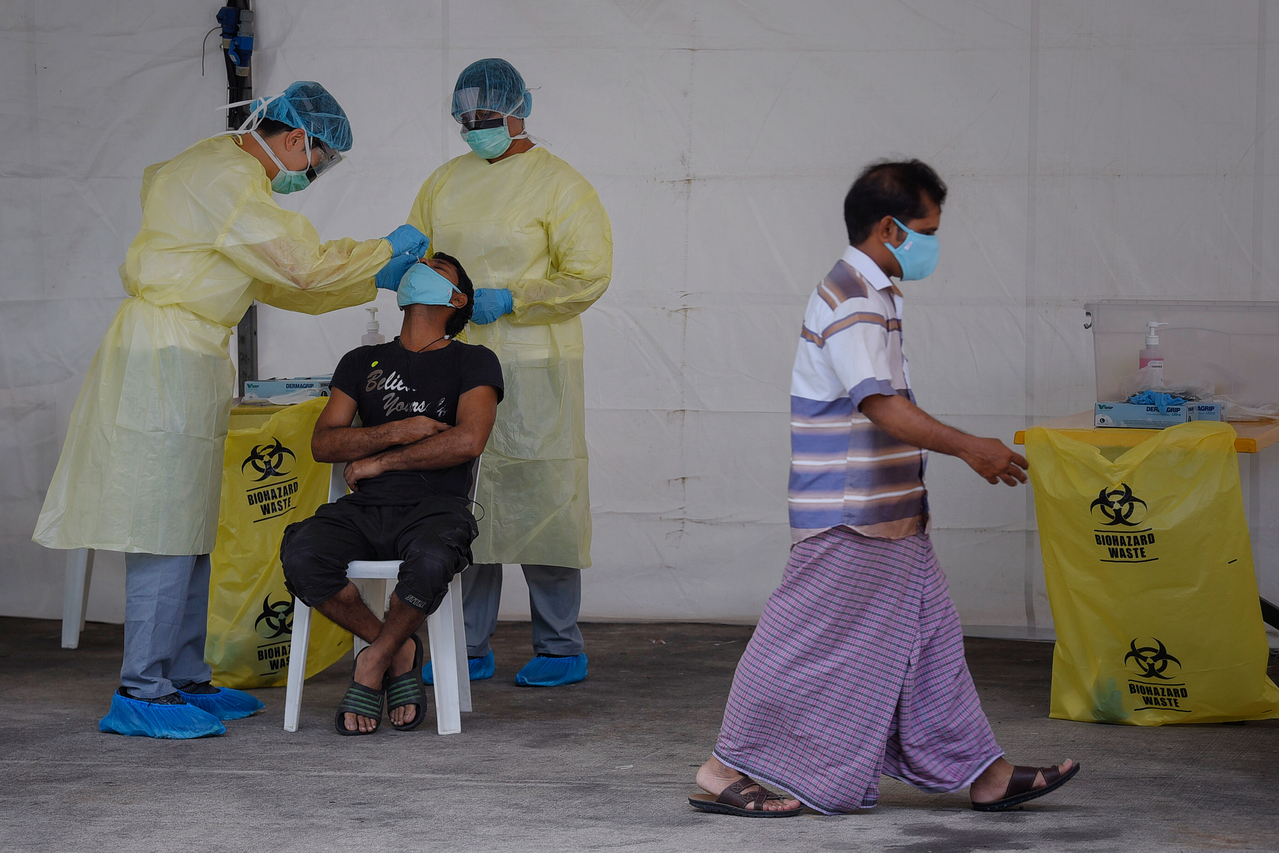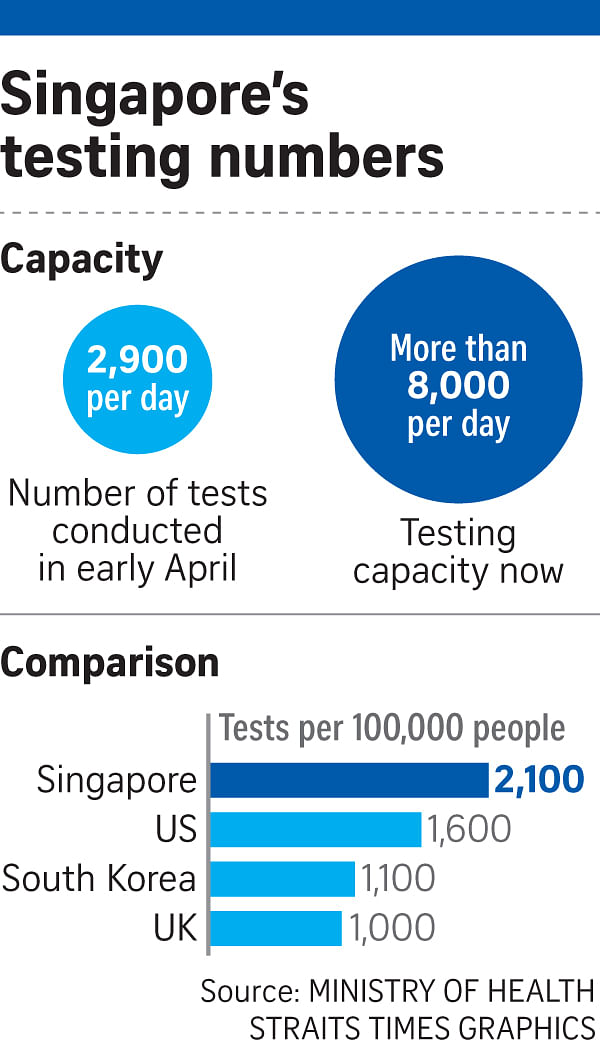Singapore has been ramping up testing for coronavirus to help curb spread
Health Minister says number of tests has been increased, not reduced, to help detect cases
Sign up now: Get ST's newsletters delivered to your inbox

A worker residing in the Westlite Papan dormitory getting a swab test on April 21, 2020.
ST PHOTO: MARK CHEONG
Singapore has ramped up testing for the coronavirus in order to curb its spread and bring the outbreak under control.
It has also boosted its testing capacity and can now carry out more than 8,000 tests a day, up from 2,900 at the start of this month.
This will provide its citizens an extra layer of protection. Essential workers, such as those caring for the vulnerable elderly, are currently being tested, and the plan is to gradually expand testing to a wider pool so that critical services can continue, Health Minister Gan Kim Yong said at a media conference yesterday.
Its robust capacity has also enabled Singapore to test about 2,100 people per 100,000 in its population. In comparison, the United States has tested 1,600 per 100,000, and Britain has tested 1,000 per 100,000.
Mr Gan also rejected suggestions that the Government has reduced testing of migrant workers, leading to a drop in the number of confirmed cases.
"This is not true. Our testing capacity for migrant workers is about 3,000 a day," he said. "We have not reduced it. Instead, we have been increasing the capa-city of testing of our migrant workers. The rate of testing has not slowed down."
A total of 21,000 workers living in dormitories - or one in 15 such workers - have been tested since the start of the outbreak. Every positive test is added to Singapore's case count, he said.
The testing capacity will also be critical as the country works towards the eventual easing of circuit breaker measures.
That will happen after daily new cases in the wider community have dropped consistently to the single digits over a period of time, National Development Minister Lawrence Wong said at the same media conference.
Meanwhile, Singaporeans must press on with measures to stop the virus from spreading, said Mr Wong, on a day when 799 new virus cases and two deaths were reported.
"Testing, as critical and important as it is, cannot be a substitute for personal responsibility and safe distancing measures," he said.

"So we go back to the fundamentals and ask everyone, during this period, to stay home and uphold good personal hygiene."
Mr Wong said the Government has also made plans to house workers who have recovered from Covid-19, with both short-term and longer-term plans being studied.
In the wider community, he said, restrictions would be eased in a "very calibrated manner" only after the number of new cases consistently came down to single digits over a period of time.
Scaling up testing and implementing technology to track people's movements and help in contact tracing will be two key elements of this strategy, Mr Wong said.
"We are developing plans around both of these areas and we will be able to share more details when we are ready," he added. "But these are critical enablers for us to progressively open up the economy.
He stressed that people should still exercise personal and social responsibility even after the circuit breaker period is over.
"We should not just pin everything on testing and assume that after the circuit breaker is over, everything can restart, we can have all sorts of social interactions... parties can go on. I don't think that will be the responsible thing to do," said Mr Wong.
"We should still try very hard to minimise our social interactions because it only takes one person interacting in a group in close quarters with many people to cause another cluster," he added.
Yesterday, the offices of Leader of the House Grace Fu and the Clerk of Parliament announced plans to amend the Constitution to allow Parliament to sit in more than one location at the same time, or virtually. The Bill will be introduced in Parliament next week.


